
Please Please Me is the debut studio album by the English rock band the Beatles. Produced by George Martin, it was released in the UK on EMI's Parlophone label on 22 March 1963. The album is 14 songs in length, and contains a mixture of cover songs and original material written by the partnership of band members John Lennon and Paul McCartney.
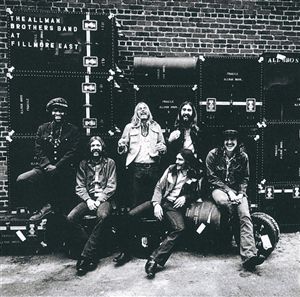
At Fillmore East is the first live album by American rock band the Allman Brothers Band, and their third release overall. Produced by Tom Dowd, the album was released on July 6, 1971, in the United States by Capricorn Records. As the title indicates, the recording took place at the New York City music venue Fillmore East, which was run by concert promoter Bill Graham. It was recorded over the course of three nights in March 1971 and features the band performing extended jam versions of songs such as "Whipping Post", "You Don't Love Me" and "In Memory of Elizabeth Reed". When first commercially released, it was issued as a double LP with just seven songs across four vinyl sides.

Derek and the Dominos were a short-lived English–American blues rock band formed in the spring of 1970 by singer-guitarist Eric Clapton, keyboardist-singer Bobby Whitlock, bassist Carl Radle and drummer Jim Gordon. All four members had previously played together in Delaney & Bonnie and Friends, during and after Clapton's brief tenure with Blind Faith. Dave Mason supplied additional lead guitar on early studio sessions and played at their first live gig. Another participant at their first session as a band was George Harrison, the recording for whose album All Things Must Pass marked the formation of Derek and the Dominos.
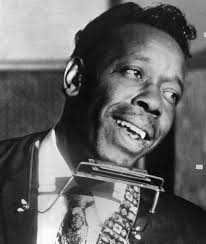
Slim Harpo was an American blues musician, a leading exponent of the swamp blues style, and "one of the most commercially successful blues artists of his day". He played guitar and was a master of the blues harmonica, known in blues circles as a "harp". His most successful and influential recordings included "I'm a King Bee" (1957), "Rainin' in My Heart" (1961), and "Baby Scratch My Back" (1966), which reached number one on Billboard's R&B chart and number 16 on its broader Hot 100 singles chart.

The Nitty Gritty Dirt Band (NGDB) is an American country rock band formed in 1966. The group has existed in various forms since its founding in Long Beach, California. Between 1976 and 1981, the band performed and recorded as the Dirt Band.

The Jon Spencer Blues Explosion was an American three-piece rock band from New York City, formed in 1991. The group consisted of Judah Bauer on guitar, backing vocals, harmonica and occasional lead vocals, Russell Simins on drums and Jon Spencer on vocals, guitar and theremin. Their musical style is largely rooted in rock and roll although it draws influences from punk, blues, garage, rockabilly, soul, noise rock, rhythm and blues and hip hop.

Edward Allan Clarke, better known as "Fast" Eddie Clarke or simply "Fast" Eddie, was a British guitarist who was a member of heavy metal bands Fastway and Motörhead. Of Motörhead's classic lineup, which consisted of Lemmy and Phil "Philthy Animal" Taylor, he was the last surviving member at the time of his death.

The Outsiders were an American rock and roll band from Cleveland, Ohio, that was founded and led by guitarist Tom King. The band released the hit single "Time Won't Let Me" in early 1966, which peaked at No. 5 in the US in April. The band had three other Hot 100 top 40 hit singles in 1966, but none on the Hot 100 afterwards, and released a total of four albums in the mid-1960s.
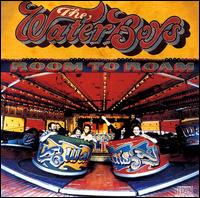
Room to Roam is the fifth studio album by the Waterboys, released by Ensign Records on 2 October 1990. It continued the folk rock sound of 1988's Fisherman's Blues, but was less of a commercial success, reaching #180 on the Billboard Top 200 after its release in September 1990. Critical response continues to be mixed. Allmusic describes it both as "not quite as [musically] successful" as Fisherman's Blues, but also as a "Celtic rock classic". The front and back covers were designed by Simon Fowler based upon photography by Stefano Giovannini and Sean Jackson.

In The Hollies Style is the second album by the British rock band the Hollies and was released in November 1964 on Parlophone Records. It missed the official Record Retailer album chart in the United Kingdom, which at the time only had a total of 20 available spots. In Canada, it was released on Capitol in October 1965, with an altered track listing.

"Baby, Please Don't Go" is a traditional blues song that was popularized by Delta blues musician Big Joe Williams in 1935. Many cover versions followed, leading to its description as "one of the most played, arranged, and rearranged pieces in blues history" by French music historian Gérard Herzhaft.
The Starfires is an American rock and roll band founded in Cleveland, Ohio, in 1958 by Tom King when he was 15. The band is usually identified as Tom King and the Starfires. King is best known as the original bandleader of the Outsiders; however, it was only at the insistence of Capitol Records that the band's name was changed when they created their breakout hit "Time Won't Let Me".
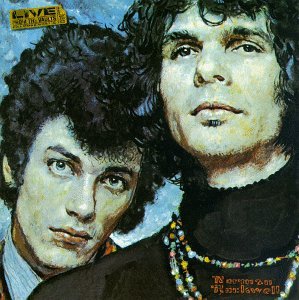
The Live Adventures of Mike Bloomfield and Al Kooper is a double album recorded at the Fillmore West venue; the album is a successor to the studio album Super Session, which included Stephen Stills in addition to Bloomfield and Kooper, and had achieved commercial and critical success earlier in 1968.

The Great Lost Twilley Album is a compilation of songs from the Dwight Twilley Band and Dwight Twilley solo, recorded in 1974 through 1980 and released in 1993 on Shelter Records. The basic band consisted of Dwight Twilley, Phil Seymour, and Bill Pitcock IV ; other musicians include Leon Russell, Tom Petty and Susan Cowsill. Most of the production is credited to Twilley and Seymour, although some other producers who worked on songs on the record include Jack Nitzsche, Leon Russell, Robin Cable and Chuck Plotkin.
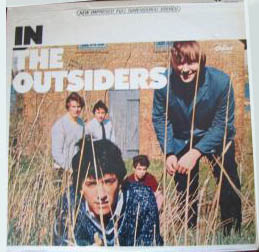
In is the third studio album by the Outsiders. It is the first album released by the band that did not make the Billboard charts.
"Oh Baby Don't You Weep" is a song recorded in 1964 by James Brown and The Famous Flames. Based upon the spiritual "Mary Don't You Weep", it was recorded as an extended-length track and released as the first two-part single of Brown's recording career. It peaked at #23 on the Billboard Hot 100 and at #4 on the Cash Box R&B Chart.. It was the last original song featuring the Famous Flames to chart, not counting the 1964 re-release of "Please, Please, Please" and the 1966 B-side release of the Live at the Apollo performance of "I'll Go Crazy".

"You Don't Love Me" is a rhythm and blues-influenced blues song recorded by American musician Willie Cobbs in 1960. Adapted from Bo Diddley's 1955 song "She's Fine She's Mine", it is Cobbs' best-known song and features a guitar figure and melody that has appealed to musicians in several genres.
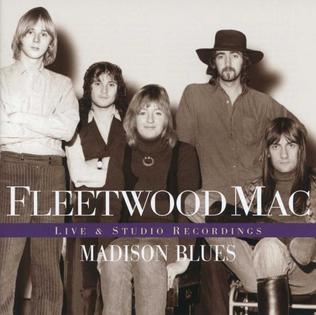
Madison Blues – Live & Studio Recordings is a compilation album by British blues rock band Fleetwood Mac, released in 2003. It is a compilation of BBC session tracks and live concert material from the band's first post-Peter Green line up, none of which had previously been officially released. The album focuses on the period between the successful Peter Green period and the start of the Bob Welch period which eventually led to another successful period for the band in the mid to late 1970s. Packaged as a double CD with a DVD interview with guitarist Jeremy Spencer, it came in a cardboard box with a foldout inner sheet.

"Time Won't Let Me" is a garage rock song that was recorded by the Outsiders in September 1965. The song became a major hit in the United States in 1966, reaching No.5 on the Billboard Hot 100 on the week of April 16 of that year. It is ranked as the 42nd biggest American hit of 1966. In Canada, the song also reached No.5 in the weekly charts.
"Hate to See You Go" is a blues song written and recorded by Chicago blues artist Little Walter. In 1955, Checker Records released it as one of three singles by Walter that year. The song, a one chord modal blues, is a reworking of "You Don't Love Me", written by Bo Diddley and recorded one month prior.
















